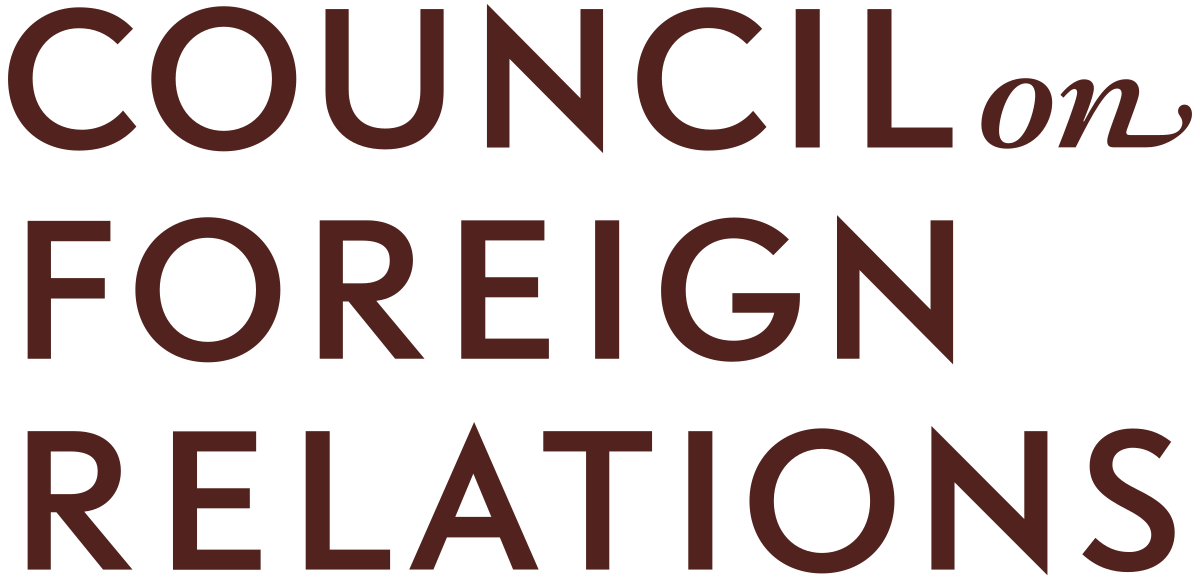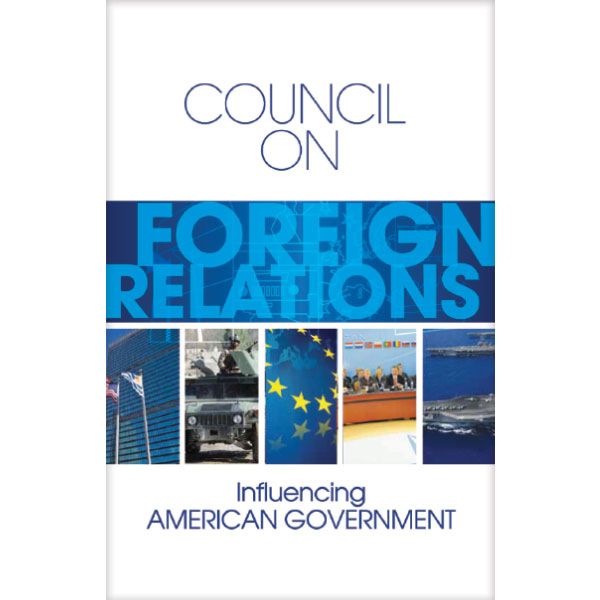The Council on Foreign Relations (CFR) is one of the most prominent think tanks in the United States, shaping global policy and foreign relations discussions. Established in 1921, it has become a cornerstone of international diplomacy and policy-making. Through its publications, events, and membership, the CFR plays a pivotal role in influencing global affairs.
As the world becomes increasingly interconnected, understanding the role of influential organizations like the Council on Foreign Relations becomes essential. This article delves into the history, structure, and impact of the CFR, providing readers with a comprehensive view of its operations and significance in global politics.
This guide explores the inner workings of the CFR, its contributions to foreign policy, and its relevance in shaping global discourse. By examining its initiatives, publications, and key figures, we aim to provide a balanced and informative overview of this influential organization.
Read also:Creatures Of Sonaria Values List Comprehensive Guide For Collectors And Enthusiasts
Table of Contents
- History and Formation of the Council on Foreign Relations
- Organizational Structure and Membership
- Key Publications and Resources
- Influence on Global Policy
- Notable Members and Their Contributions
- Criticism and Controversies
- CFR Events and Conferences
- Educational Initiatives
- Partnerships and Collaborations
- The Future of the Council on Foreign Relations
History and Formation of the Council on Foreign Relations
The Council on Foreign Relations was established in 1921, following the conclusion of World War I. Its founding aimed to address the need for a more informed and strategic approach to international relations. The organization emerged as a response to the challenges faced by the United States in navigating global politics after the war.
From its inception, the CFR has been committed to fostering dialogue and understanding among policymakers, academics, and business leaders. Its early years focused on analyzing the geopolitical landscape and providing insights into emerging global issues. Over time, the organization expanded its scope to encompass a wide range of topics, including economic policy, security, and climate change.
Key Milestones in the CFR's History
- 1921: Establishment of the CFR in New York City.
- 1922: Launch of Foreign Affairs, the organization's flagship journal.
- 1940s: Expansion of membership and influence during World War II.
- 1970s: Increased focus on economic and environmental issues.
- 2000s: Development of digital platforms and global outreach initiatives.
Organizational Structure and Membership
The Council on Foreign Relations operates as a nonpartisan think tank, with a diverse membership comprising experts from various fields. Its structure includes a board of directors, a president, and a network of members who contribute to its activities and discussions.
Membership in the CFR is highly selective, with individuals invited based on their expertise and contributions to international affairs. The organization maintains a balance between policymakers, academics, and business leaders, ensuring a comprehensive perspective on global issues.
Membership Categories
- Corporate Members: Companies and organizations with a vested interest in global affairs.
- Individual Members: Experts and professionals from various sectors.
- Young Professionals: Emerging leaders in international relations.
Key Publications and Resources
The Council on Foreign Relations produces a wide array of publications and resources, aimed at informing and educating its audience. Among its most notable contributions is the journal Foreign Affairs, which has been a cornerstone of international relations discourse since its launch in 1922.
In addition to Foreign Affairs, the CFR offers reports, briefs, and online resources that cover a broad spectrum of global issues. These publications are widely regarded as authoritative sources of information on international policy.
Read also:Xbox Cloud Gaming Unblocked A Comprehensive Guide To Seamless Gaming
Notable Publications
- Foreign Affairs: A bi-monthly journal featuring articles by leading experts.
- CFR Reports: In-depth analyses of specific global challenges.
- Interactive Tools: Online resources for understanding complex issues.
Influence on Global Policy
The Council on Foreign Relations wields significant influence in shaping global policy through its research, publications, and events. Its members often hold key positions in government, academia, and industry, allowing the organization to impact decision-making processes at the highest levels.
By providing a platform for dialogue and analysis, the CFR contributes to the development of informed policies that address pressing global issues. Its influence extends beyond the United States, as it engages with international partners to promote cooperation and understanding.
Examples of CFR's Impact
- Shaping U.S. foreign policy through expert recommendations.
- Facilitating international cooperation on climate change.
- Providing insights into global economic trends and challenges.
Notable Members and Their Contributions
The Council on Foreign Relations boasts a membership roster that includes some of the most influential figures in global affairs. These members contribute to the organization's activities through their expertise and leadership, enhancing its impact on international policy.
Among the notable members of the CFR are former U.S. Secretaries of State, Nobel laureates, and prominent business leaders. Their contributions span a wide range of fields, reflecting the organization's commitment to diversity and inclusivity.
Biographies of Key Members
| Name | Position | Contribution |
|---|---|---|
| Henry Kissinger | Former U.S. Secretary of State | Expert on international diplomacy and strategy. |
| Condoleezza Rice | Former U.S. Secretary of State | Leader in global security and policy-making. |
| Jeffrey Sachs | Economist and Author | Prominent voice on sustainable development and poverty reduction. |
Criticism and Controversies
While the Council on Foreign Relations is widely respected for its contributions to global policy, it has not been without criticism. Some critics argue that the organization's influence is disproportionate and that its membership lacks sufficient diversity. Others question the transparency of its operations and the potential for conflicts of interest.
Despite these criticisms, the CFR continues to engage in open dialogue and strives to address concerns through its initiatives and programs. By fostering a culture of inclusivity and transparency, the organization aims to maintain its position as a trusted source of information and analysis.
Addressing Criticism
- Expanding membership to include diverse perspectives.
- Encouraging open dialogue and debate on controversial issues.
- Enhancing transparency in operations and decision-making processes.
CFR Events and Conferences
The Council on Foreign Relations hosts a variety of events and conferences throughout the year, bringing together experts and leaders from around the world. These events provide a platform for discussing pressing global issues and exploring potential solutions.
From high-level meetings to public forums, the CFR's events cater to a wide audience, ensuring that its insights reach a broad range of stakeholders. These gatherings are instrumental in shaping the discourse on international relations and fostering collaboration among participants.
Notable Events
- Annual Meetings: Bringing together members and experts for in-depth discussions.
- Public Forums: Engaging the general public in global affairs.
- Special Conferences: Focusing on specific topics and challenges.
Educational Initiatives
Education plays a crucial role in the Council on Foreign Relations' mission to inform and engage its audience. Through various initiatives, the organization provides resources and opportunities for learning about global issues and their implications.
From online courses to educational materials, the CFR offers tools that empower individuals to deepen their understanding of international relations. These initiatives are designed to reach a wide audience, including students, educators, and policymakers.
Key Educational Programs
- Model Diplomacy: A simulation program for students and educators.
- CFR Campus: Online resources for academic use.
- Interactive Case Studies: Engaging tools for exploring complex issues.
Partnerships and Collaborations
The Council on Foreign Relations collaborates with a wide range of organizations and institutions to advance its mission and expand its reach. These partnerships enhance the organization's ability to address global challenges and promote cooperation among stakeholders.
Through its collaborations, the CFR engages with international organizations, academic institutions, and private sector partners to foster dialogue and develop innovative solutions to pressing issues.
Examples of Partnerships
- United Nations: Collaborating on global policy initiatives.
- Academic Institutions: Partnering on research and educational programs.
- Private Sector: Engaging businesses in discussions on economic and environmental issues.
The Future of the Council on Foreign Relations
As the world continues to evolve, the Council on Foreign Relations remains committed to its mission of informing and influencing global policy. The organization's future lies in its ability to adapt to changing circumstances and address emerging challenges.
Through its ongoing initiatives and expanding reach, the CFR aims to remain at the forefront of international relations discourse. By fostering collaboration and promoting informed decision-making, the organization will continue to play a vital role in shaping the future of global affairs.
Looking Ahead
- Expanding digital platforms to reach a broader audience.
- Enhancing diversity and inclusivity in membership and initiatives.
- Pursuing innovative solutions to global challenges.
Kesimpulan
The Council on Foreign Relations has established itself as a leading voice in global policy and international relations. Through its publications, events, and partnerships, the organization continues to shape the discourse on pressing global issues. By engaging diverse perspectives and fostering collaboration, the CFR remains a vital contributor to informed decision-making in global affairs.
We invite you to explore the resources and initiatives offered by the Council on Foreign Relations and to join the conversation on global issues. Your participation can help shape the future of international relations and contribute to a more informed and interconnected world. Share your thoughts in the comments below or explore other articles on our site for further insights into global affairs.


